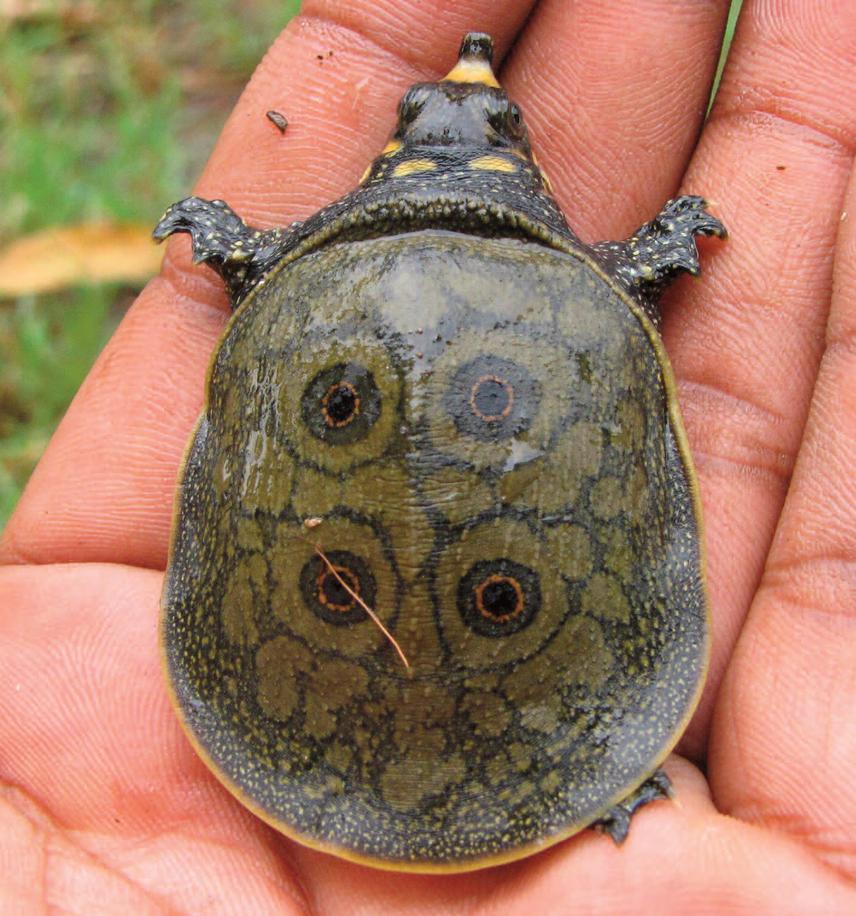Chittaranjan Baruah
Other projects
26 Mar 2015
Assessment of Turtle Diversity and Habitat Suitability in Community Temple Ponds of Assam, India
The main objective of the project is to conduct a survey on Pangshura sylhetensis along with other endangered chelonians (Nilssonia nigricans and Chitra indica) in Assam, to increase awareness about freshwater turtles and train the communities and youth in turtle conservation.

Nilssonian hurum (juvénile), Brahmaputre, Assam. © Chittaranjan
The North-eastern region of India falls within the Indo-Burma Biodiversity Hotspot has been poorly explored scientifically with regard to surveys, conservation and monitoring of turtle fauna. The islands (Chars) of the river Brahmaputra host many species of turtles including endangered Pangshura sylhetensis, Chitra indica and Nilssonia nigricans, one of the 25 most endangered turtle species of the world.
Preliminary surveys show that every year during the period from the 1st week of October to the 1st week of February, a huge number of turtle eggs are collected by the inhabitants of the islands (Chars) of the river Brahmaputra and sold in the local market. The killing of adult female freshwater turtles and incidental catch of breeding adults has created pressure on the freshwater turtle populations. Therefore, the present project seeks to sensitize and educate people about the significance of chelonian presence and their conservation and to start a participatory endangered turtle species conservation programme.
This project will help in the evaluation of habitat patterns, and current threats facing Pangshura sylhetensis, Nilssonia nigricans and Chitra indica along with other turtle species in the Char areas of river Brahmaputra in Assam, India which will be helpful in initiating efforts for the conservation of the chelonian species in this region.